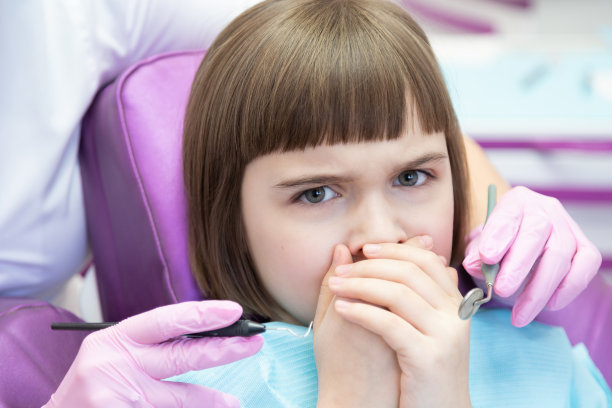Summary: Dental fillings are common procedures designed to restore damaged teeth, ensuring optimal oral health. However, proper precautions before and after the procedure are essential for a successful recovery and lasting results. This article outlines critical steps focusing on preparation, post-procedure care, nutritional considerations, and factors affecting healing time. By being adequately informed, patients can enhance their overall dental experience, minimize discomfort, and support their oral health more effectively.
1. Preparing for Your Dental Filling Procedure

Preparation is key to a smooth dental filling procedure. First, ensure you have a productive conversation with your dentist regarding the filling type, materials used, and any potential allergies you may have to dental substances. Clear communication sets up a foundation of trust and understanding essential for your comfort during the treatment.
Next, consider arranging transportation for the day of your appointment. Some filling procedures involve local anesthesia, which may impair your ability to drive. Having a friend or family member accompany you can ease the process and also ensure you have someone to discuss any immediate concerns with after the procedure.
Lastly, manage your mental preparation by practicing relaxation techniques. Anxiety before dental visits is common; mindfulness, deep breathing, and visualization techniques can all help reduce this stress. A calm mindset will not only make the visit more pleasant but may also facilitate a quicker recovery.
2. Immediate Post-Procedure Care Tips
Immediate aftercare is crucial to ensure effective healing following your dental filling. For the first few hours post-procedure, avoid eating or drinking, especially hot or cold substances, to allow the anesthetic to wear off completely. This precaution helps prevent biting your cheeks or tongue inadvertently while numb.
As the anesthesia wears off, mild discomfort may occur. Over-the-counter pain relievers can be beneficial; however, it is important to follow the recommended dosage as prescribed by your dentist. Monitoring your body’s reaction to these medications will also guide any necessary adjustments.
Additionally, if you experience unusual or severe pain, swelling, or bleeding, contact your dentist immediately. These could be signs of complications, and timely intervention is essential for a proper recovery path.
3. Nutrition and Oral Hygiene After Fillings
Your diet plays a significant role in recovery post-dental filling. Initially, opt for soft foods that don’t require much chewing, such as yogurt, smoothies, or mashed potatoes. Avoid sticky, hard, or crunchy foods as they can dislodge the filling or cause discomfort.
Hydration is equally important; therefore, drink plenty of water to keep your mouth moist and promote healing. Staying hydrated helps flush out bacteria, reducing the risk of infection in the treated area. Caffeine and alcohol should be avoided for at least the first 24 hours post-procedure as they can lead to dehydration.
Maintaining good oral hygiene remains paramount even after dental procedures. Gently brushing and flossing around the filling site is essential to keep it clean and free from decay. Your dentist may recommend specific oral hygiene practices tailored to your filling type, ensuring optimal care.
4. Factors Influencing Healing Time and Recovery
Various factors can influence your recovery speed post-dental filling. One significant aspect is your overall health. Patients with chronic diseases or those who smoke may experience a slower healing process. Being mindful of your general health can allow your body to support a more effective recovery.
Moreover, the type of filling material used can also impact recovery time. For instance, composite fillings often require a curing lamp to harden, and while these ensure a strong bond, it may take a small amount of time before they are fully set. Follow your dentists guidelines on when it is safe to resume normal activities post-treatment.
Lastly, your adherence to care instructions can greatly affect your recovery. Following prescribed post-care routines, maintaining scheduled check-ups, and being vigilant about oral hygiene will enhance the healing process. Remember, proactive engagement in your dental health plays a vital role in recovery.
Summary:
Preparing adequately for your dental filling procedure, practicing effective post-procedure care, being mindful of your nutrition, and understanding the factors influencing healing time are essential to ensure a smooth recovery. By investing in these precautions, you pave the way for good oral health and a positive dental experience.
This article is compiled by Vickong Dental and the content is for reference only.
Vickong Dental
Vickong Dental is a large medical group established in Hong Kong in 2008 by professors from well-known medical universities in Guangdong and Hong Kong, as well as medical doctors from key national '985' universities (including Master's supervisors and senior professors). The chain of branches brings together expert dentists with PhDs and Master's degrees from Hong Kong and Mainland China, committed to providing high-quality dental treatment.
"Vickong Dental Practices the University Motto of 'Healing and Serving Society,' with a Stable Operation for Sixteen Years. It Has Been honored with Hong Kong Enterprise Leaders's Choice,' and is a Global Trusted Implant Center for the Nobel Implant System. Recommended by Hong Kong Metro Broadcast and Guangdong Television, it Serves Customers from Over Thirty Countries and Regions, Gaining the Trust and Favor of Citizens from the Guangdong-Hong Kong-Macau Greater Bay Area and Surrounding Cities.

Thousands of customers' unanimous praise
The most recognized and highly recommended dental service by customers in the Guangdong-Hong Kong-Macau Greater Bay Area
We Ensure You Receive Detailed Care and Attention Here
Hong Kong standards, Shenzhen prices, Your Trusted English-speaking dentists

Vickong Dental Medical-Grade Instrument Disinfection Process
Vickong Dental Medical-Grade Instrument Disinfection Process

Vickong Dental Chain: A Warm and Comfortable Environment for Treatment






Appointment Hours

Q&A
Why choose Vickong Dental?
Vickong Dental practices the university motto 「Medicine to Benefit Society」, with each branch bringing together highly qualified dentists with doctoral and master’s degrees from Hong Kong and the Mainland, and has maintained seventeen years of steady operation。Recipient of 「2024 Hong Kong Enterprise Leaders Brand」, 「2025 Hong Kong Enterprise Leaders Brand」, a Nobel Biocare Global Trusted Implant Center, and a brand recommended by Metro Radio Hong Kong and Guangdong TV。
To date, we have served customers from more than thirty countries and regions,earning exceptionally high word-of-mouth recognition and trusted recommendations from residents across the Guangdong-Hong Kong-Macao Greater Bay Area and surrounding cities
We have eight major branches in Zhuhai、Shenzhen,and a consultation and service assurance center in Hong Kong,so you can book a free consultation at any time for any questions,which is very reassuring.
If I do not accept the quotation after the CT scan, will I be charged??
No! As long as the actual treatment has not started, you will not be charged any fees.
Will there be any additional charges during the treatment process?
No, there won’t be any additional charges. Before treatment begins, we will clearly explain the treatment plan and its corresponding fees. Only after the patient agrees and signs the consent form will we proceed with the dental service.
Can I pay in Hong Kong dollars?
Yes. Vickong Dental accepts payment in Hong Kong dollars. The amount will be converted based on the exchange rate of the day, and the applicable rate will be clearly communicated to you in advance.
Can I reschedule my appointment at any time?
Yes. Please contact us via **WeChat** or **WhatsApp** as early as possible, providing your original appointment time and details, along with your preferred new date and time slot for rescheduling.













